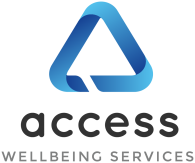
Supporting Someone with Drug and Alcohol Challenges: A Guide for Friends, Family and Workplaces
|
Listen to this article
Getting your Trinity Audio player ready...
|
Substance use is a part of life for many people—whether it’s enjoying a drink to unwind, taking prescription medication, or using recreational drugs in social settings. But when it begins to interfere with daily life, relationships or mental health, it might be time to take a closer look.
If someone close to you is struggling with drugs or alcohol, your support—whether as a friend, family member, colleague or manager—can be a lifeline.
Why People Turn to Substances
People use substances for different reasons. For some, it’s a way to relax or socialise. For others, it may be a way to cope with anxiety, depression, trauma or grief. According to Beyond Blue, drug and alcohol use is sometimes a short-term strategy to manage emotional distress—but over time, it can make mental health challenges worse.
Substance use is not always about addiction. Sometimes it’s about reliance—needing something external to get through the day, or to avoid what’s going on internally.
Understanding Substance Misuse
Substance misuse refers to the harmful use of drugs or alcohol for non-medical reasons. While it often refers to illicit substances, legal substances—such as alcohol, prescription medications, nicotine and even caffeine—can also be misused.
Some people are more at risk of developing substance dependence due to factors like:
- Pre-existing mental health conditions
- A history of trauma
- Social or workplace stress
- Family history of substance use
Recognising substance misuse is the first step toward making a change.
Warning Signs to Look Out For
Whether you’re a friend, family member or manager, signs of problematic substance use can include:
- Using substances to manage stress, emotions or sleep
- Concealing or lying about use
- Declining performance at work
- Withdrawing from relationships or usual activities
- Mood swings or personality changes
- Taking risks or engaging in unsafe behaviour
If you’ve noticed these signs in someone you care about, it might be time to start a conversation.
How to Start the Conversation
Approaching someone about their substance use can feel daunting—but your concern might be exactly what they need.
Here are some tips:
- Choose the right time and place. Aim for a quiet moment where you won’t be interrupted.
- Be non-judgemental. Speak from a place of care, not criticism.
- Use “I” statements. For example, “I’ve noticed you haven’t seemed yourself lately and I’m worried.”
- Encourage support, not confrontation. Suggest options like counselling, and offer to help them take the first step.
At Access Wellbeing Services, we often support clients who are navigating this kind of conversation—whether they’re the person experiencing substance issues or someone worried about a colleague or loved one.
How an Employee Assistance Program (EAP) Can Help
Access Wellbeing Services provides confidential counselling and support through your organisation’s Employee Assistance Program (EAP).
Whether you’re:
- Struggling with your own drug or alcohol use
- Feeling overwhelmed by a family member’s substance issues
- Unsure how to support a colleague or team member
- A manager concerned about performance, safety or wellbeing
Through Access Wellbeing Services, you can speak with a qualified counsellor about:
- Managing stress or trauma without relying on substances
- Setting healthy boundaries and routines
- Accessing treatment pathways such as detox or rehabilitation
- Navigating difficult conversations at work or home
- Building long-term strategies for resilience and recovery
Best of all, EAP counselling is free, confidential, and available to both employees and their immediate family members (depending on your employer’s agreement).
Treatment and Recovery: What It Can Look Like
Recovery is different for everyone. What works for one person might not work for another—but no one has to go it alone. Options might include:
- Individual counselling
- Detox programs
- Rehabilitation (inpatient or outpatient)
- Support groups like Alcoholics Anonymous, Narcotics Anonymous or SMART Recovery
- Online support through services like Counselling Online or the Alcohol and Drug Foundation
Your AWS EAP counsellor can help you understand which approach is right for you or your loved one and guide you through your next steps.
The Benefits of Reducing or Quitting Substance Use
Taking steps to change your relationship with drugs or alcohol can lead to:
- Improved mental clarity and physical health
- Stronger relationships
- Better sleep and more energy
- Greater emotional stability
- A renewed sense of control and purpose
Research from the Australian Institute of Health and Welfare (AIHW) shows that people who reduce harmful substance use often experience improved wellbeing across every area of life.
If You Need Help—Now
Immediate Support:
- National Alcohol and Other Drug Hotline (Australia): 1800 250 015
- Lifeline: 13 11 14
- Counselling Online: counsellingonline.org.au
- Alcohol and Drug Foundation: adf.org.au
Through Your EAP:
If your workplace partners with Access Wellbeing Services, you can access free, confidential counselling today. Check with HR or your organisation’s intranet or get in touch with AWS directly.
References
-
- Beyond Blue. Drugs, alcohol and mental health
- Alcohol and Drug Foundation. Substance use facts and support
- Australian Institute of Health and Welfare. (2025). Alcohol, tobacco & other drugs in Australia
- Counselling Online. 24/7 support
